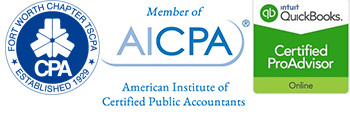Business depreciation rules had a face lift over the past few years. The “Protecting Americans from Tax Hikes” (PATH) Act of 2015 recently and importantly made permanent some key components of the 2014 depreciation regulations—including the more generous accelerated first-year depreciation options (Section 179 and bonus depreciation).
Here are some of the ways you might be affected:
- Easier tax planning. Prior to PATH, Congress was simply extending these provisions year after year—often doing so when we were well into the current tax year, making tax planning a challenge. Now that these provisions have been deemed permanent, tax planners can more readily project their clients’ tax liabilities in years of significant capital purchases or improvements. So this is good news!
- Higher first-year depreciation ceiling. Section 179 first-year depreciation, for years 2015 and beyond before the tax enactment, was capped at $25,000. Thanks to PATH, however, lawmakers have now permanently raised the ceiling to $500,000—which is great news for businesses making substantial cash outlays for equipment or improvements. By accelerating tax depreciation expense, tax liabilities can be reduced in the year of the cash outflow. Or, in basic terms, businesses can now deduct up to $500,000 in first-year depreciation expense—AND this is indexed for inflation! (Of course, this is subject to certain limitations and types of property, and assumes the deduction does not create a business loss. In case of a business loss as a result of the Section 179 depreciation, the depreciation is carried forward for use in a subsequent year against income.)
- Now permanent: Bonus depreciation. The PATH Act now permanently enables businesses to deduct 50% of the cost of new (not used) qualifying property as depreciation expense in the first year placed in service—AND this amount can be deducted regardless of a net loss.
- Now permanent: Expensing of qualified real property. Beginning in 2016 and in subsequent years, businesses now have a permanent ability to expense qualified real property without a carryover limitation.
- HVAC units are now eligible for first-year depreciation! This is HUGE news! Businesses can now apply first-year Section 179 depreciation to air conditioning and heating units! This means that if you are planning to replace a major A/C component in your commercial building, you can now expense the cost in the first year (up to net income limits) instead of dealing with a depreciation term of 39 years! That’s a 38-year depreciation expense difference! (Unfortunately, if you’re a residential rental landlord, Section 179 is not allowed.)
As most of our clients are aware, depreciation plays a key role in net taxable income and should regularly be reviewed when projecting business tax liability. We at McIlvain & Associates are always ready to further discuss important changes such as these with our clients. If you have any questions, feel free to drop me a note or comment below.

Leave a Reply